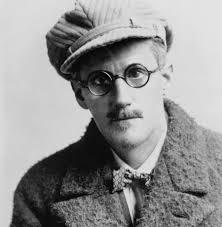
In honor of Bloomsday, I'm going to take another step in my formerly steady march through Dubliners, Joyce's collection of fifteen short stories that first brought him to the attention of the literary world (and of censors). I left off by giving a poor notice to "Ivy Day in the Committee Room." (Just had to show that I'm not intimidated by Joyce's reputation.) Next up, then, would be the thirteenth story, "A Mother," which is open to a similar charge: there is a fight, and both sides are right about what ails the other. Another sneer.
I have remarked before about how Joyce's language in these stories seems calculated to augment the effect of the drab Dublin he describes. But then there will be a sentence that stands out from the gray, and in "A Mother" I think it is one describing a "journalist," Mr O'Madden Burke, who has come to cover the concert and finds "by instinct" the room where the liquor is kept. "His magniloquent western name," Joyce writes, "was the moral umbrella upon which he balanced the fine problem of his finances." He gets the last word, too. When the confrontation is over, and the reader may be trying to decide whose side to take, Mr O'Madden Burke, "poised upon his umbrella in approval," assures Mr Holohan that he (Holohan) did the right thing, and the story ends.
"A Mother" is usually thought of as Joyce's take on the Irish Revival. Along this line, it's worth noting another detail relating to O'Madden Burke. He had shown up with a colleague who could not, however, stay for the concert of Irish national music on account of having to "report the lecture which an American priest was giving in the Mansion House." But he will of course make sure that O'Madden Burke's favorable notice gets into the paper.
